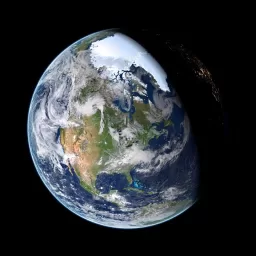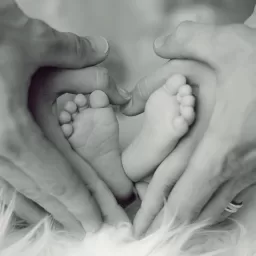Many effects of global warming are with us now. Rising temperatures and ocean levels. Melting glaciers and polar ice.
But do you know what these will mean to you? Or to your children?
And what you can do. You, tiny individual among 6 billion people.
Perhaps if we all had a clearer idea about the effects in our daily lives, we would try to do more about global warming. I am betting that more knowledge on this subject is a good thing, despite its shock-and-awe effects.
So, read on you brave learner!
Briefly, the effects of global warming include these:
* Extreme weather
* Rising oceans
* Food and water resources
* Human health
* Economic
* War and conflicts, and
* Further global warming
And each effect affects another, closely connected to the Earth’s web of life.
Do you know that today’s average surface temperature is up by about half a degree Celsius compared to temperatures in 1890? “Half a degree!” you exclaim. So what?
Well, if half a degree has the power to melt all the glaciers on five continents, as it is doing now, then what would the prediction of about five degrees by the end of this century mean to your daily life?
But you do not live near any glaciers you say. OK. Consider this:
Glaciers are the source of many of the great rivers that keep crops irrigated, provide water for drinking and washing and let you enjoy fishing and swimming.
“But I live in a city and when I want water I open a tap. For swimming I have the bath and as far as fishing is concerned there’s the local fish shop!”
Right, I see. It is difficult to get you to feel uncomfortable with effects of global warming.
How about this then.
Many organisations are concerned about the effects. The UN’s Intergovernmental Panel on Climate Change predicts as most likely a 3C rise in global surface temperature by 2050. The UK’s chief scientific advisor Professor King has warned that such a rise would put some 400 million people at risk of starvation. Even the Pentagon, that least of all greenie organisations, wrote a report in 2004 that highlighted predictions of
* Severe water shortages
* Severe energy shortages
* Mega droughts and floods
* Nuclear conflict,
* Famine
* Widespread rioting
* Wars over water and energy resources
* At 150 million migrating environmental refugees
And these are suggested to occur in the next 20 years. Not too far away is it? Got your attention now?
These effects would be felt everywhere – even by city dwellers who have forgotten what a cow looks like.
Overwhelmed? Understandable, but don’t be. Mother Earth needs all the practical people like you who commit themselves to action.
There are two levels at which you can do that. Change the way you think and do something every day. No matter how small.
Change the way you think.
We are in this mess because we have come to believe that there are no limits to energy resources and whatever the Earth can provide. Progress is about material things rather than how we get on – with ourselves, with others and with our environments.
Einstein said that you cannot solve problems with the same thinking that caused them. True. To change our ingrained thinking a practical step would be to engage with people who know how to live well under highly challenging circumstances. To build positive relationships with them would help.
Who are they then?
People with disabilities and frail aged people often know how to live a sustainable, even a flourishing life, despite their vulnerable situation. They have learned that our world is interdependent and wellbeing is made through getting on well with others.
So, come on. Make a far-travelling ripple in the pond by throwing your pebble of direct action today, whenever it crosses your path. Give someone a hand, a smile or a chat. It will change your mindset and may prove the Pentagon wrong on some scores at least if enough of us do that.
Make some practical changes
Small acts can have big results.
For example if everyone changed just one traditional 75W light bulb for an 18W compact fluorescent one for four hours a day this small action could reduce greenhouse emissions by millions of tonnes annually. Just 100,000 tonnes is equivalent to taking some 22,000 cars off the road!
So this act causes real ripples.
What else? Let’s see.
* Dress warmly and turn your thermostat down a degree on cold days
* Close your blinds to keep the sun out on hot days
* Turn off lights when you do not need them
* Turn the computer off when not in use
* Walk or cycle rather than take the car
* Use public transport
* Buy an energy-efficient car
* Insist on energy-efficient housing design
* Reduce your shower time – or shower together (Mmm, well that may be counter productive)
* Buy energy-efficient rated appliances. And…
* Use your creativity to save energy where you can. There is so much you can do to reduce further global warming.
Over to you.
Let it ripple!







